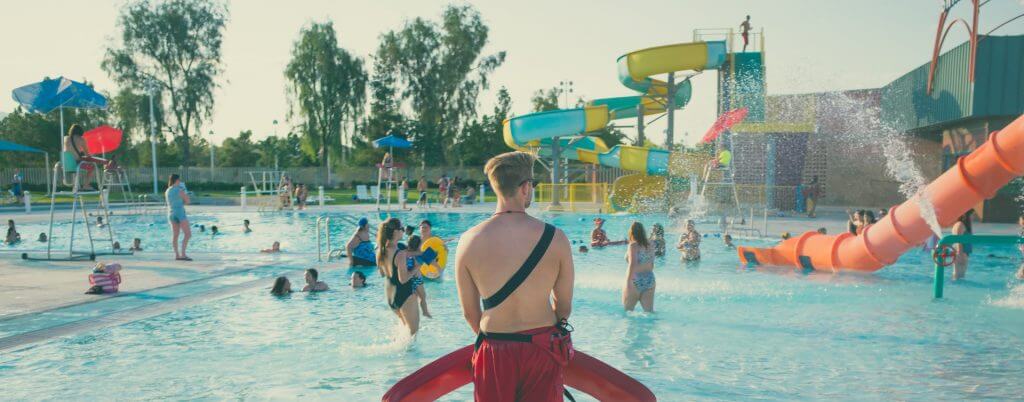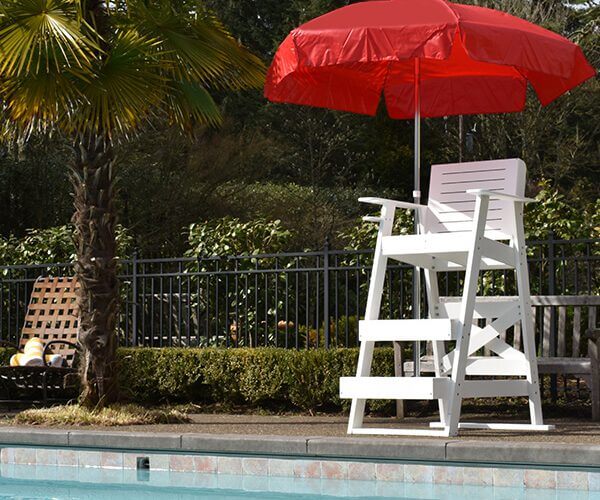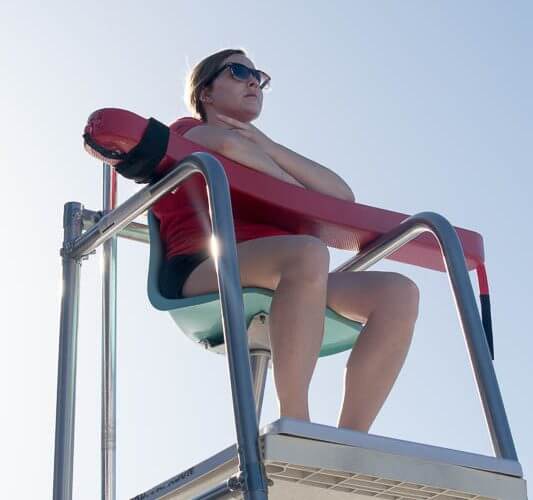Lifeguard Shortage Raises Safety Concerns in Pools Across the Country

By Danny Whirlow, Swimming World College Intern.
As June gives way to July, Americans will continue to find ways to enjoy the scorching summer sun. Many families will turn to their community pools to cool down amidst the heat. But as more and more pools across the country find themselves with fewer lifeguards, pool-goers have begun to question their safety in these former sanctuaries.

Photo Courtesy: S.R. Smith
This is exactly the problem facing Raleigh Aquatic Director Terri Stroupe. She oversees the North Carolina capital’s eight public pools, four of which are open year-round. Usually, over 300 lifeguards are employed. Lately, the city has been about 20 guards short.
While that may not seem like much, lifeguards have busy lives outside of work like the rest of us. They too call in sick or go on family vacations. This can mean fewer eyes are available to keep watch. Sections of pools become closed in order to maximize patron safety with small staff sizes.
“Nobody is going unguarded, but we are spreading ourselves pretty thin,” Stroupe says in an interview with Richard Adkins of WRAL News.
A little over 25 miles away in Durham, Recreation and Aquatic manager Colleen Toomey also faces difficulty hiring lifeguards. When discussing this with WRAL News, Toomey notes the numerous external pressures facing today’s youths, the primary demographic of lifeguards: “High school students are being pushed to prepare for college, and college students are being pushed to internships and jobs.”
North Carolina is not alone in its recruitment struggle. Sue Wells, the Parks and Recreation Manager of Operations of Oakland County, Detroit, Michigan, echoes Toomey’s sentiments in an interview with Tiffany Esshaki of C&G Newspapers.
“Sports have become a year-round endeavor, so a lot of them are doing some kind of summer conditioning with their team. And there’s more and more emphasis on workplace experience for college students.” -Sue Wells
Photo Courtesy: Aurora Blackwell
No Clear Solution As Of Now
Certainly, these are alarming reports. Many pools have tried to combat shortages by raising wages, hiring retirees and shortening hours. One pool in Reno, Nevada, went as far as to divide their open hours into two sessions, both with “limited capacity based on lifeguard availability” admissions.
Another method of filling up positions is recruiting exchange students as lifeguards. Pool management companies – particularly on the East Coast – hire proficient swimmers abroad who are interested in visiting America. The young people who take the jobs obtain short-term work visas. However, due to increased visa denials and fears of being unwelcome, foreign recruitment is no longer as effective now as it was in the past.
Nonetheless, hope may loom on the horizon.
A Light at the End of the Tunnel?

Photo Courtesy: Juan Salamanca
Presently, the American Red Cross provides a way for working lifeguards to help train the next generation. As certified instructors, experienced lifeguards can pass on their knowledge and wisdom to their trainees to better prepare them to protect the lives of their communities. Current lifeguards can also become certified swim instructors, a cornerstone of the Red Cross mission.
“Our swim lessons remain incredibly popular around the country, particularly in Michigan,” writes Perry Rech in an email to C&G Newspapers. “We have classes going on across the state throughout the year. From Red Cross-led classes to those directed through our program partners, water competency remains key to the Red Cross mission overall.”
Rech is the regional communications and marketing director for the American Red Cross of Southeast Michigan. What he calls “water competency” is comprised of three important areas: water smarts, swimming skills and helping others. This type of training could be what gives the youth of tomorrow the aquatic confidence to handle the immense responsibilities of being a lifeguard.
Recently, a casual pool-goer Sam Lombardo brought his grandchildren Siena (12) and Corin (10) to the Ridge Road pool in Raleigh. He reports feeling content as they splashed around in the sun. “The first thing I noticed is the young lifeguards, and they are very young to me,” says the 70-year-old. “(The lifeguards) are very attentive and very serious about their job. Their focus is constantly on the water. I’ve been watching them, and I feel like I can turn my head away from the water and the grandchildren and not worry, because the lifeguards are conscientiously on the job.”
What are some solutions you would propose to boost staffing?
-All commentaries are the opinion of the author and do not necessarily reflect the views of Swimming World Magazine nor its staff.





Link not working.
It is a tough job and it is definitely a concern in my town and towns around me. Most kids would rather work at the mall than sit outside in the heat all summer. Or they go to local country clubs and camps instead for higher pay. It is very sad
Our community is working with this and with help high school add lifeguarding as class it has helped